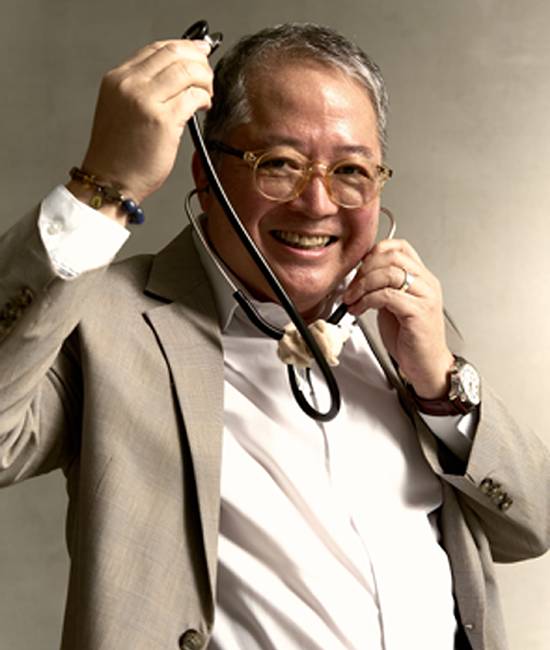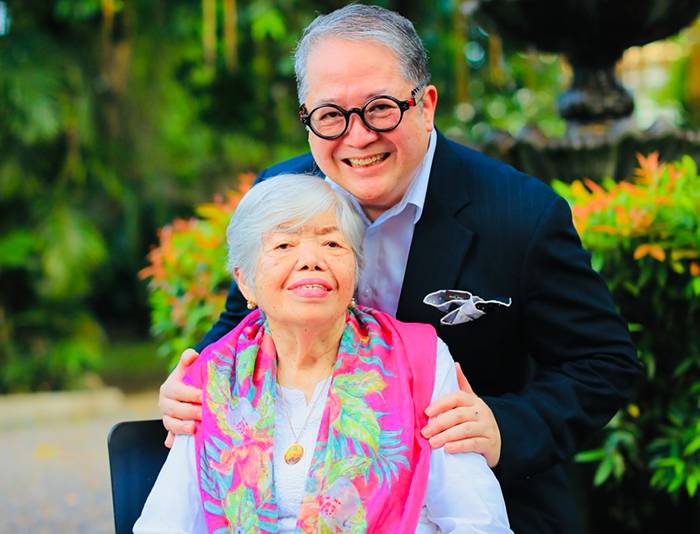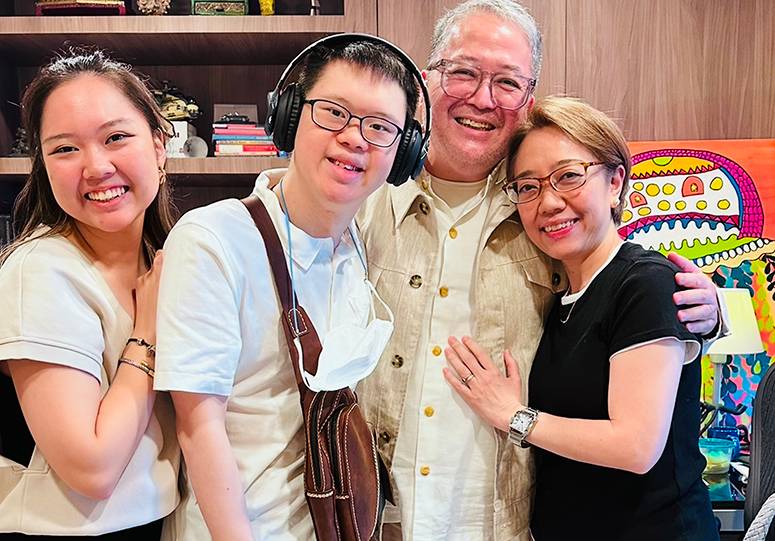Child talk with Dr. Francis Dimalanta M.D.
From being the life of the party and the beaming light in any room he walked into in his teenage years, Dr. Francis Xavier Dimalanta is now making countless children and teenagers the life of their families.
A developmental and behavioral pediatrician, Dr. Dimalanta, with his keen eye, empathy and undeniable charm, is a fish in water as he assesses and treats children and adolescents in the medical and psychosocial aspects of their development and behavioral concerns and problems.
Dr. Dimalanta, whom I knew as “Danny” during our UP days, grew up in Baguio. We were dorm friends at the Kalayaan Residence Hall for freshmen. We became friends for life.

What made him want to be a physician?
“My mother, now a blessed 95, is a retired pediatrician. I guess being around her practice must have indirectly influenced me. Ironically, she admonished me not to take up Medicine as it would take long to graduate, but I persisted,” recalls “Dr. D,” who holds clinic at the St. Luke’s Medical Center in Quezon City and Global City.
“Medicine was an uphill climb but with the support of my family—who believed in me and prayed unceasingly for my success—I was encouraged to persevere,” he continues. Like his mother, he specialized in pediatrics and went a step further by sub-specializing in developmental and behavioral pediatrics.
“Believe it or not, back then, it was a new field—I was the 12th graduate of the program at the UP-PGH. I wanted to make a difference in a then-uncharted field,” he shares.

Adjusting to the times
What exactly is a developmental and behavioral pediatrician?
“Developmental and behavioral pediatricians have special training and experience in assessing and treating children and adolescents in their development and behavioral concerns/problems,” he says.
Times have indeed changed, and pediatricians have to adapt to the changes.
“The digital age is a significant factor in the difference of how children and teenagers are being raised. The diet of children and teenagers now are also different because of the prevalence of processed foods,” he notes.

At what age does he recommend that a child be allowed to use a mobile phone?
“Hold off as long as you can,” advises Dr. Dimalanta, speaking from experience. “Or, an alternative would be to get them a brick or ‘dumb’ phone so that the safety and communication issue is addressed but still shielding them from the bombardment of information that they may not be ready for.”
To raise well-adjusted and secure children, Dr. Dimalanta advises parents to establish daily routines.
“Routines provide structure and help children learn to act appropriately. For example, you can have a bedtime routine that includes a bath, brushing teeth, and reading a book,” he elucidates.
Parents should remember to praise their children, he stresses.
“Praise builds self-esteem and resilience. Vague praise, like a thumbs-up, can be more beneficial than specific praise because it doesn’t link a child’s good work to a trait. Praise them for their effort not specific traits.”
Children experience challenges, believe it or not. Parents should be a buddy in those times.
“Help your children manage their emotions. Practice a simple step together: Stop, take a deep breath, and count to five,” he counsels.
Eventually children become adolescents and life may become more complicated due to a number of factors, physical and social.
Dr. Dimalanta has these pieces of advice for teenagers:
- Always be kind and be respectful of others.
- Respect others, even when they have different opinions. Respect your parents.
- Practice self-care.
- Eat well, exercise, and get enough sleep to take care of your physical and mental health. Set healthy boundaries.
- Appreciate learning.
- While a lot can be learned online and you can earn without a degree, there is a value in education.
Mental health is usually the elephant in the room, whether it is a gathering of adults or teenagers.
“It is of the utmost importance!” emphasizes Dr. Dimalanta.
“We need to guide them from birth in self-regulating their emotions. As they get older, childhood experiences will start to weigh on their development and if they are not properly equipped to respond, it will get harder for them to adjust. Thus, setting boundaries during the first six years of life is imperative.”
Despite the challenges of bringing out the best behavior in children and helping their parents make them reach their full potential, Dr. Dimalanta has no regrets taking on a fragile and yet difficult specialty.
“Seeing children of various concerns become better versions of themselves and succeeding at life—not just surviving, but thriving, makes it all worth it” for him.
A COVID survivor who could not even lie flat on a bed during his confinement due to breathing difficulties, Dr. Dimalanta remembers looking forward to seeing every sunrise from his hospital window.
What is he most grateful for?
“My life. I am a COVID survivor and this second chance at life means twice as much,” he says without batting an eyelash. “With this second chance, I am even more determined to be an instrument of care in all children—typical and neurotypical, neuro-divergent, gifted, and with exceptional needs. Their success is worth all the trials and challenges I’ve been through.”
The life of the party is still the life of the party. After all, the “child is the father of man” (William Wordsworth) and a better world truly begins with the child. *


